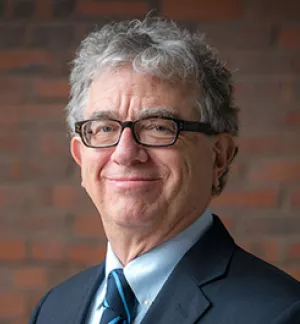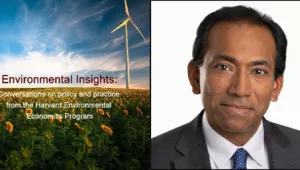Assuming he is confirmed by the Senate, Greg Mankiw, a Harvard economics professor, will soon be chairman of President George W. Bush's Council of Economic Advisers. He may need some advice: a historical perspective on what an adviser can do when official White House policy goes contrary to his convictions as an economist.
It would be a coincidence if any president accepted every position that his economic advisers had taken on every issue. But there are likely to be large divergences between Mr Bush and good economics - represented, for example, by Mr Mankiw's own popular textbook - in such areas as budget deficits, steel tariffs, agricultural subsidies and conflict with the Federal Reserve.
He joins a National Economic Council director and Treasury secretary who have already been asked to sell a shift towards budget deficits that appears inconsistent with their past views. It is possible for a Treasury secretary or Office of Management and Budget director to toe the party line while in office, then confess later that this did not entirely correspond to his beliefs. A professor of economics such as Mr Mankiw, who plans to return to Harvard after his service, cannot engage in such inconsistencies without risking losing some of the professional credibility so important to an academic career. Indeed, this truth-telling constraint may be the most valuable attribute of a council of economic advisers.
It might help to know the strategies employed by past economic advisers, when they have disagreed with the president. In the late 1960s, Lyndon B. Johnson initially rejected the advice of Gardner Ackley that if he wanted to pursue the war in Vietnam simultaneously with his domestic spending programmes, he was going to have to pay for it by raising taxes. In 1971, Richard Nixon imposed wage and price controls, considered "sinful" by his CEA advisers Paul McCracken and Herb Stein. In 1983-84, Martin Feldstein, Ronald Reagan's CEA chairman, gave speeches and testimony predicting years of record budget and trade deficits. This went over badly among White House aides, even though the predictions turned out to be accurate.
Mr. Mankiw will want to avoid the fate of Michael Boskin, who was CEA chairman under his new boss's father. In 1990 and 1991, Mr Boskin tried to warn George H.W. Bush about a weak economy, contrary to the happy talk that was being written into the president's speeches, with little success. Later, as employment stagnated, the press reported a perception that the White House had neglected the economy, precisely what Mr Boskin had feared, and Mr Bush sank sharply in the opinion polls.
Three weeks before the 1992 election, as a desperate campaign move to demonstrate that the president "got it", the White House tried to blame the economic troubles on Mr Boskin and the other advisers, by announcing that if re-elected he would not reappoint them. A similar absence of loyalty to the economic team was displayed by George W. Bush in December 2002, in the unceremonious manner in which the departures of Paul O'Neill, Treasury secretary, and Larry Lindsey, economic adviser, were announced.
Do economic advisers ever quit in protest over a policy disagreement? Although there is little historical precedent in the US for resigning over an issue of policy, it happens occasionally. Mr McCracken considered leaving when Mr Nixon rejected his advice on wage-price controls but postponed the resignation for four months to minimise negative publicity.
Ten years later, Mr Reagan's first CEA chairman, Murray Weidenbaum, did the same thing. The president was forever giving speeches about the need to cut government spending and yet, when faced with hard budget decisions, repeatedly declined the aggressive option, even in areas of spending that the CEA chairman considered wasteful (military as well as domestic). In late 1982, Mr Weidenbaum decided to leave his position early, owing to his frustration over this issue and the knowledge that he could not defend the coming budget deficits. But, out of loyalty, he did not publicly resign in protest, nor has he revealed the story since.
Mr. Mankiw has one factor working in his favour: in these situations, the press seldom asks persistent or sophisticated questions. So one can usually formulate a careful sentence that appears to be consistent with the White House line and yet is not literally false, and get away with it. His immediate predecessor, Glenn Hubbard, signed on to the White House statement "interest rates don't move in lockstep with budget deficits". He, like Mr Mankiw, has a textbook with the standard model linking interest rates to budget deficit.
But because the sentence is true as written, Mr. Hubbard has nothing to fear from his colleagues when he returns to university life. The press did not ask the follow-ups: "While budget deficits are not the only factor that determine interest rates, doesn't a budget deficit cause interest rates to be higher than they otherwise would be? And regardless whether that increase is small, doesn't the deficit crowd out investment?" In the current national mood this president is getting an easier ride than his predecessors, so this is probably Mr. Mankiw's best bet.
Frankel, Jeffrey. “Advice to a Fledgling Economic Advisor.” Financial Times, March 31, 2003





